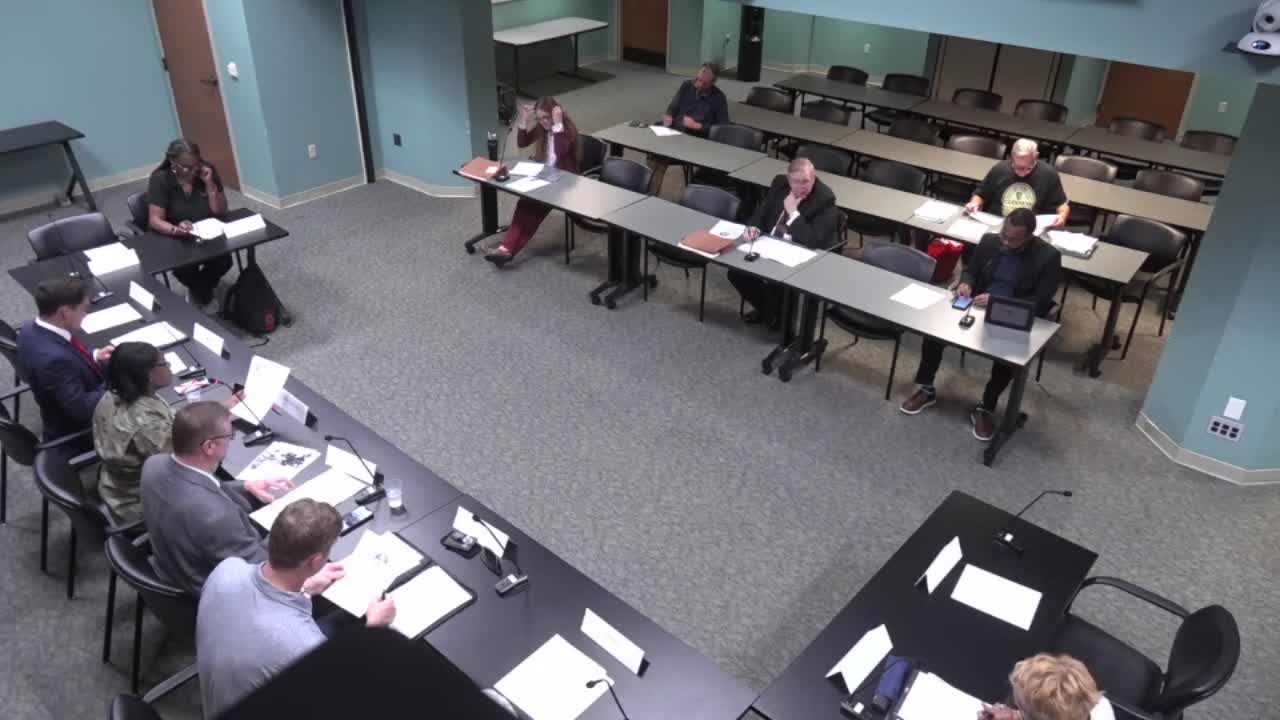Kids Hope Alliance explains funding and oversight; commissioners press on budgets, conflicts
Get AI-powered insights, summaries, and transcripts
Subscribe
Summary
Kenneth Darity, interim CAO/acting CEO of the Kids Hope Alliance, told the True Commission KHA primarily funds nonprofits through city RFPs, reimburses on documented deliverables and conducts site visits; commissioners pressed for budget numbers, conflict‑of‑interest safeguards and a strategic plan.
Kenneth Darity, interim chief administrative officer acting as CEO of the Kids Hope Alliance, told the True Commission on Nov. 11 that the agency funds about 140 providers mostly through the city’s procurement Request for Proposal process and reimburses organizations for documented deliverables.
“We basically fund everything through the city's procurement process,” Darity said, describing a scored RFP system that requires providers to meet minimum criteria and then distributes limited funds from highest to lowest scoring applicants. He said most contracts are paid on a unit‑of‑service basis and that providers must submit supporting documentation in the agency’s payment system to receive reimbursement.
Darity said KHA’s portfolio centers on five “essential service” categories — including out‑of‑school time, early learning and services for special needs children — and that the agency has about nine contract managers who conduct both announced and unannounced site visits to verify services. He also said KHA maintains a small grants unit that pursues federal funding and can include subcontractors on federal grants.
Commissioners pressed for budget and oversight details. A staff member cited the current city schedule figure for total city funding at $60,406,080; Darity said he did not have capital and operating breakdowns in front of him and noted some funds in the figure represent operating support rather than direct programming. Darity estimated KHA’s staff at roughly 50 employees and the board at seven members.
On potential conflicts of interest, Darity said city conflict‑of‑interest disclosures are submitted annually to the ethics office and that the agency funnels conflict questions to the ethics office for guidance. He described instances in which incomplete supporting documentation delayed or reduced reimbursements and said the agency prioritizes front‑end education so dollars reach providers while still protecting taxpayer funds.
Commissioners also asked whether KHA sets targets such as a per‑child funding goal or clear metrics for how many children should be served. Darity said the board oversees essential service categories and that a chief strategic officer and the board produce strategic plans and gap analyses; he said updated RFPs aligned to the next strategic plan are expected when current RFPs expire in early 2027.
When asked about private organizations that appear on funding lists, Darity reiterated that all recipients must meet the RFP requirements and that funded activities must relate to children and youth. On salaries, he said city employee pay information is public and available through a public‑records request.
Darity declined to discuss recent personnel changes, saying it was not appropriate to address a recent executive director removal in that forum. The commission requested KHA return with more complete budget and strategic‑plan materials when available.
